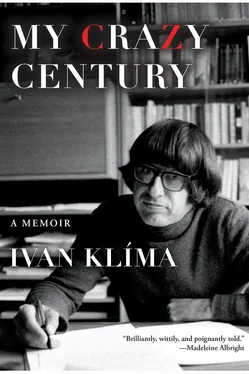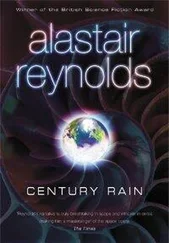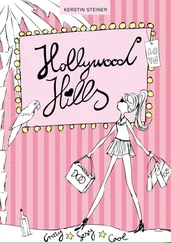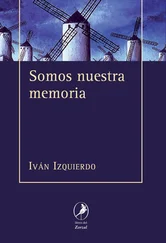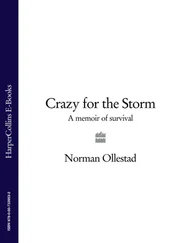Finally he gave up and signed mountains of reports. Then for several weeks they prepared material for the prosecution. He’d already come to terms with the fact that he wouldn’t get out of there for more than ten years. But they took him to the prosecutor, who surprisingly addressed him not as the “accused” but rather as “Mr. Klíma” and advised him to forget about everything he’d confessed to and/or signed. Originally it had been decided that he would get twenty years for sabotage, but now there was no need. Yes, he’d used the word “need.”
“Now I was supposed to confess that I’d devoted too little time to the training of young people; I’d neglected the rules of job management and thereby disrupted the fulfillment of the five-year plan. Then I could go home. I didn’t understand what was happening,” explained Father.
Yes, you were actually lucky, agreed Aunt Hedvika, and she explained that when the Leader had died, everything started to change. New instructions had arrived from Moscow, and prosecuting attorneys were ordered to make sure that they didn’t break any laws, that they didn’t force confessions and convict the innocent.
The ordinary criminals he had been placed with, continued Father, taught him never to admit anything. Not even what you’d actually committed. Keep this in mind, he said, turning to us; you never know what you might run into.
Essay: The Necessity of Faith, p. 458
On one of my journalist excursions, this time to eastern Bohemia, I arrived at a village where placards announced that actors from the Východočeské Theater would be performing that day. The performance took place on a small stage in the local pub. I bought a ticket and took a seat in the overcrowded room.
In this pretelevision era, the audience was quite grateful and applauded after each scene whether it was a song or speech. But sometimes I didn’t really understand what was going on. The audience members would become extremely boisterous and burst out laughing. They would interrupt the actors with applause or shout out something that was apparently supposed to add to the dialogue of the theater troupe.
When it was over I went backstage, introduced myself to the actors as a correspondent from Mladá fronta, and said I would love to write about their performance.
They weren’t much older than myself, and like most actors they wanted as much attention as they could get even after they had stepped down from the stage. It was with great pleasure that they described how they traveled during their free time around the provinces and sang folk songs along with the new revolutionary ones, recited classics, and added some progressive poets who composed verses about contemporary times. The greatest success was reserved for those sketches taken directly from daily life. They explained that a few days before they were supposed to perform, they would send their writer into the town to listen as the locals described the difficulties they were having, and whether something special or unusual had happened. Then he would put together a brief sketch in which the people would recognize themselves or their neighbors. Thereby the theater was returning to its ancient roots when people sat around the fire and talked or sang about their immediate concerns.
I was captivated by the image of an author seeking out stories among the lives of villagers and then concocting miniature dramas from them. I knew I could do it too, but I lacked actors along with everything else necessary for such an undertaking.
When I returned to Prague, however, ideas began flitting through my mind. We had foreign students in our department studying the basics of the Czech language, and I thought viewers would find them fascinating during this time when the entire country was locked behind impermeable borders. A few days later I learned that a Chinese woman, whose name in translation meant Doe Grazing in a Spring Meadow, had decided to study opera in Prague. An Italian by the name of Fabri played the accordion and knew loads of folk and revolutionary songs, and an officer in the Korean People’s Army, Nam Ki Duk, was willing to talk in tolerable Czech about the horrors of the recent war. A pair of young Czech teaching assistants knew some satirical sketches they had already performed. Further inquiry led me to a group of girls who had formed a Moravian folk song trio, and one of my classmates, who had already published a collection of poems, was willing to go with me around the villages and compose satirical verses for other sketches. These would then be set to music and sung. There were plenty of students in the department who could recite poetry or read a text. I was convinced that the idea of forming a traveling troupe with such an appealing repertoire seemed realistic. Now all I needed was an audience.
Feigning apology, a secretary at the dean’s office informed me there were no funds available for our enterprise, and she advised me to go to the Ministry of Culture.
I had to consult the telephone directory to locate the ministry and had no idea whom to see there.
An older female comrade in charge of folk art led me to an office that contained a cheap desk, a baroque bureau, and several marvelous Chinese vases, all apparently from the erstwhile palace the ministry had taken over. The comrade took a seat behind her desk, lit a cigarette, and gazed at me silently for a moment. Then she tapped her cigarette ash into a Chinese vase and bade me speak.
She listened to my story and had only one question: Had we prepared something from Soviet literature?
We were just working on that part, I managed to reply. But our singing trio had two Russian folk songs: “Volga, Volga” and “Stenka Razin.”
The comrade gazed at me again for a moment, tossed her butt into the Chinese vase, and said that our project sounded interesting, but she had her doubts about the original sketches. She’d never heard of anything like it before, but we could at least venture an attempt. She leafed through her bulky diary and suggested she come next Wednesday at two o’clock to see our program. Unfortunately, she couldn’t come sooner.
Her willingness to see our program in a week took me by surprise, but it was only Thursday, so we had six days. I said I’d be waiting for her at the porter’s lodge.
The following Tuesday evening I was certain that all was lost. Both of our teaching assistants who had prepared a satire had left to attend a seminar; the soprano of the women’s trio was down with a fever; the emcee who could recite verses of contemporary poets had a seminar he couldn’t get out of; and our Italian accordion player had a funeral in Italy. The satirical sketches that were supposed to address local problems couldn’t be written, and even if they could, we had nobody to perform them.
My comrade from the ministry arrived a half hour late looking contrite. She was accompanied by a colleague who looked rather skeptical.
I led both women to one of the lecture rooms on the third floor and acquainted them with the bad luck that had befallen us.
An unenthusiastic group composed of the remaining members of our nonexistent troupe was waiting for us in a spacious lecture hall with a view of Prague Castle. To my horror I noticed that the highlight of the show, my Doe Grazing in a Spring Meadow, was missing.
Both comrades seated themselves in the second row and fired up their cigarettes as a sign they were ready. I asked for a brief moment of their patience.
The comrade I was acquainted with fixed her eyes for a moment on Prague Castle and recalled how she had been sitting in this room in 1939. It was the last lecture on art history she had attended. Then the Germans closed the university. Suddenly the doors opened, and Doe entered dressed in a marvelous silk robe. I noticed that both comrades were staring at her delightedly.
Читать дальше
